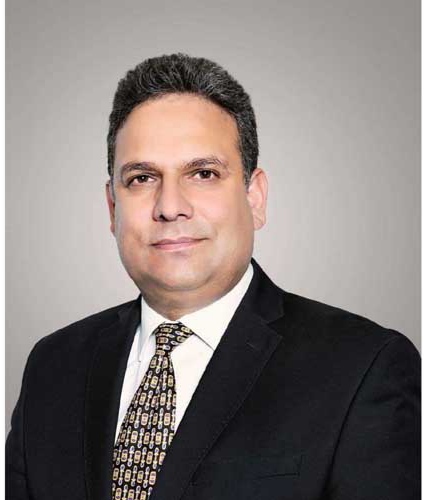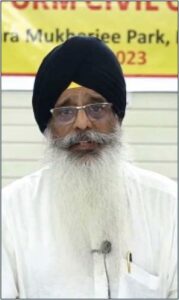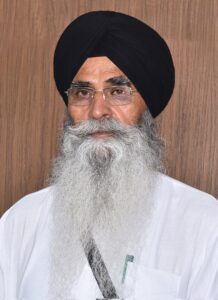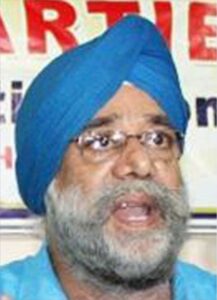“Sikhs Declare J&K High Court’s Ruling on Sikh Identity Unnecessary and Unacceptable”
The Sikh community has expressed strong objection to a recent judgement by the Jammu and Kashmir High Court, which ruled that ‘Singh’ and ‘Kaur’ are not necessary suffixes for identifying a person as a Sikh. The judgement has sparked controversy and it is perceived as an overreach by the learned Judge, with some calling it a direct attack on Sikh identity and religious norms. WSN correspondent Ishwinder Singh Dakha reports.
![The Sikh community has expressed strong objection to a recent judgement by the Jammu and Kashmir High Court, which ruled that ‘Singh’ and ‘Kaur’ are not necessary suffixes for identifying a person as a Sikh. The judgement has sparked controversy and it is perceived as an overreach by the learned Judge, with some calling it a direct attack on Sikh identity and religious norms. WSN correspondent Ishwinder Singh Dakha reports. In a rather unnecessary move, the Jammu and Kashmir High […]](https://www.theworldsikhnews.com/wp-content/uploads/2024/01/High-Court-360x267.jpg)
In a rather unnecessary move, the Jammu and Kashmir High Court, led by Justice Wasim Sadiq Nargal, issued a judgement stating that having ‘Singh’ or ‘Kaur’ as surnames is not essential for being recognized as a Sikh.
This ruling arose from a case where a petitioner, contesting District Gurdwara Parbandhak Committee elections from Akhnoor and not elected, challenged the inclusion of non-Sikh voters without these surnames. Justice Nargal, citing the J&K Sikh Gurudwara & Religious Endowment Act, 1973, observed that being recognized as Sikh is not contingent upon these surnames but rather on preaching Sikhism.
The petition had challenged the result of the elections on the grounds of the inclusion of non-Sikh voters without their surnames as ‘Singh’ and ‘Kaur’.
 The single bench of Justice Wasim Sadiq Nargal observed that “The contention of the petitioner, which has been raised by the appellant/petitioner herein before the appellate authority, is contrary to the definition laid down in the Act of 1973, which is not acceptable and the same cannot be sustainable in the eyes of law. There are many people, who do not have ‘Sikh or Kaur’ as their surnames, but still they are recognized as Sikh, as they preach Sikhism”.
The single bench of Justice Wasim Sadiq Nargal observed that “The contention of the petitioner, which has been raised by the appellant/petitioner herein before the appellate authority, is contrary to the definition laid down in the Act of 1973, which is not acceptable and the same cannot be sustainable in the eyes of law. There are many people, who do not have ‘Sikh or Kaur’ as their surnames, but still they are recognized as Sikh, as they preach Sikhism”.
This observation by the Judge that “There are many people, who do not have ‘Sikh or Kaur’ as their surnames, but still they are recognized as Sikh, as they preach Sikhism,” is fraught with dangerous implications. There may be some individuals who may not be using these suffixes as per their personal choice but that does not dilute the Sikh identity explicit in the name of the adherents of the community.
 This judgement has led to widespread criticism from various Sikh organizations. The Sikh Collective convenor Jagmohan Singh condemned the judgement, stating that it paves the way for non-Sikh voters to partake in Gurdwara committee elections, potentially causing confusion and mischief. He pointed out that this ruling coincides with the ongoing voter registration campaign for SGPC elections and vowed to appeal against it.
This judgement has led to widespread criticism from various Sikh organizations. The Sikh Collective convenor Jagmohan Singh condemned the judgement, stating that it paves the way for non-Sikh voters to partake in Gurdwara committee elections, potentially causing confusion and mischief. He pointed out that this ruling coincides with the ongoing voter registration campaign for SGPC elections and vowed to appeal against it.
“In the past, we have seen how in the name of Sehajdharis, many non-Sikh voters managed to register themselves as voters in SGPC. Similarly, such mischief is being seen in some voter lists of the Haryana Gurdwara Parbandhak Committee. We cannot be bystanders to this and we will challenge this socially and legally,” he added.
 Advocate Harjinder Singh Dhami, President of the Shiromani Gurdwara Parbandhak Committee, also strongly objected to the High Court’s decision. He emphasized that Sikh identity is rooted in the teachings of the Sikh Gurus and is not subject to judicial scrutiny. Dhami highlighted the court’s overreach in commenting on religious conduct, warning of the potential erosion of fundamental religious principles.
Advocate Harjinder Singh Dhami, President of the Shiromani Gurdwara Parbandhak Committee, also strongly objected to the High Court’s decision. He emphasized that Sikh identity is rooted in the teachings of the Sikh Gurus and is not subject to judicial scrutiny. Dhami highlighted the court’s overreach in commenting on religious conduct, warning of the potential erosion of fundamental religious principles.
 All Parties Sikh Coordination Committee Chairman Jagmohan Singh Raina referred to the judgement as ‘interference’. He stressed that while the ruling aligns with the J&K Gurdwara Endowment Act, it neglects basic knowledge of Sikhism, challenging the core tenets of the religion and provoking religious sentiments.
All Parties Sikh Coordination Committee Chairman Jagmohan Singh Raina referred to the judgement as ‘interference’. He stressed that while the ruling aligns with the J&K Gurdwara Endowment Act, it neglects basic knowledge of Sikhism, challenging the core tenets of the religion and provoking religious sentiments.
The Sikh community views the High Court’s judgement as an unnecessary and unjustified commentary on religious identity, overstepping its jurisdiction.
Religious leaders and legal experts assert that the court could have dismissed the petition based on procedural delays, avoiding any reference to the question of Sikh identity in the judgement. This ruling has united Sikh organizations in their stand against infringement on their religious rights and practices.
